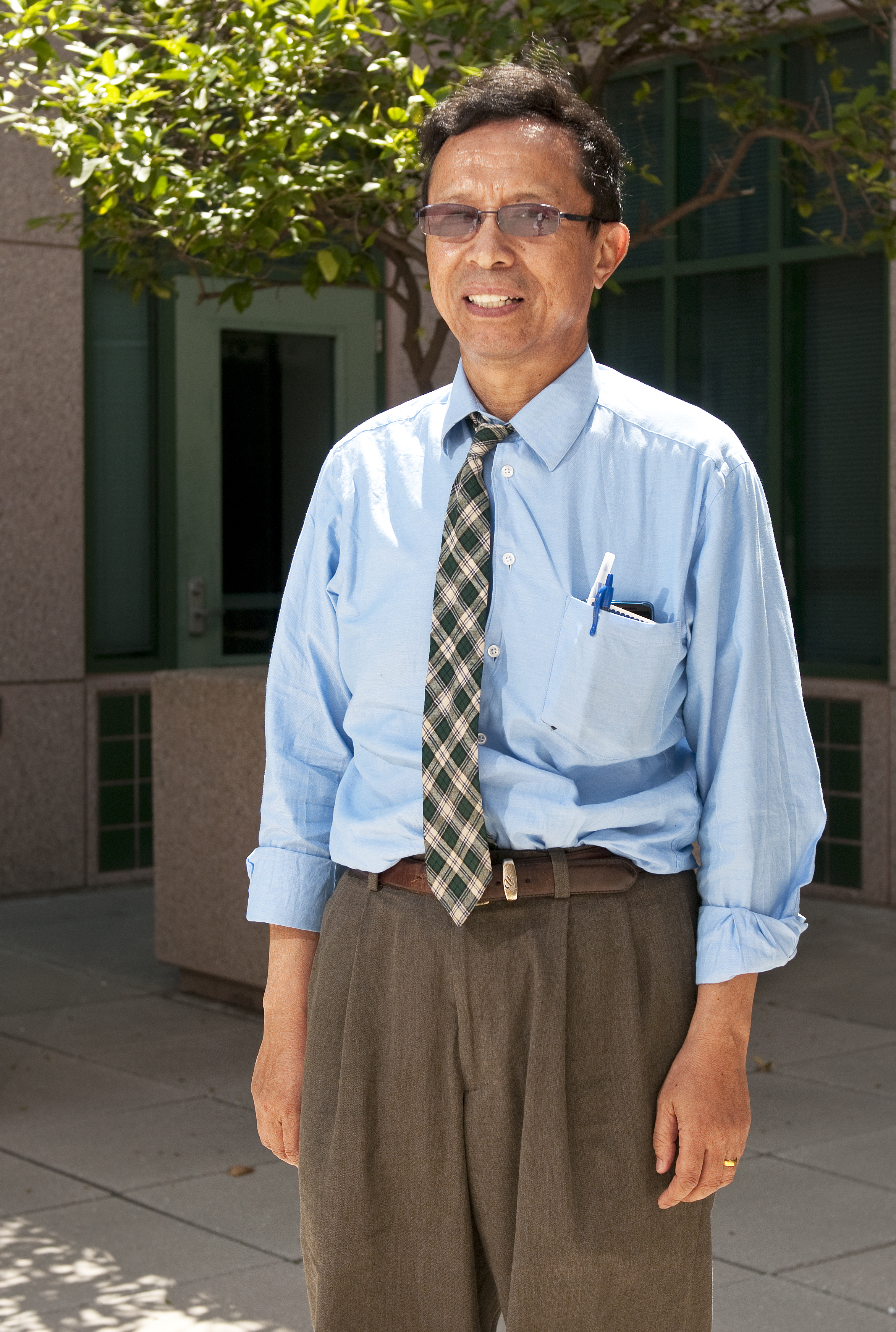Research psychologist Lobsang Rapgay applies his experience as former Buddhist monk to his work in cognitive science

Lobsang Rapgay, a research psychologist, combines his previous studies in Buddhism with his cognitive research.
Read the rest of the stories from An enlightened approach
Panel on connection between neuroscience and Buddhism proceeds without Dalai Lama
Scientific studies suggest that mindfulness can be beneficial to well-being
By Alex Chen
May 3, 2011 12:22 a.m.
Lobsang Rapgay retained his monastic vows as a Buddhist monk until 1998, leaving to pursue his career in psychology.
Though he left his religious studies for a career in medical science, Rapgay’s work is still influenced by his Buddhist background.
The research psychologist and director of the Clinical Training program for Mental Health Professionals at the UCLA Semel Institute presented his work at Monday afternoon’s symposium on the connection between neuroscience and Buddhism.
Rapgay’s story began in 1959 when Tibetan rebel forces began to clash with Mao Zedong’s occupying Chinese army.
Rapgay, then only 4 years old, fled Tibet with his family on a seven-day trek through the Himalayas and escaped to India, settling in what would become the home-in-exile of His Holiness the Dalai Lama: Dharamsala.
There, Rapgay attended Catholic boarding school, developing a strong interest in medicine and psychology.
But even in a foreign land pressured by Western influences, his ties to Tibet remained strong. Though the school was run by Irish and English Jesuit priests, he experienced no threats to his identity and practice of Buddhism, he said.
He became a deputy secretary for the Dalai Lama in 1978, acting as an English translator, retaining his monastic vows for more than 20 years.
But throughout his studies in Buddhism, Rapgay maintained an interest in the sciences.
This resulted in his move to the United States, where he earned a doctoral degree in clinical psychology.
He joined the UCLA Semel Institute for Neuroscience and Human Behavior in 1996.
Although his studies are primarily from the Western cognitive science perspective, Rapgay has found that the Buddhist mental training from his experience as a monk has been one of the best tools in his cognitive research.
“Lobsang represents an amazing blend of Eastern and Western medicine approaches to understanding how to help others,” said Dr. Robert Bilder, director of medical psychology-neuropsychology at the UCLA Semel Institute and a member of Monday’s panel. “I know he has helped many people through his application of Eastern medicine practices and particularly some of his applications of attention-focusing and broadening techniques.”
After shifting from clinical work to research in the last two or three years, Rapgay has explored attention, which is one of the most broadly studied fields in both Eastern and Western cognitive science.
The Western cognitive conception of attention differs from that of the East, Rapgay said.
Unlike in the East, Western science emphasizes the perceptual aspects of attention, such as vision.
Rapgay’s research on attention found relaxation has the ability to temporarily broaden one’s field of attention, allowing better access to peripheral information in the brain.
This discovery led him to develop the idea of mental training through relaxation, much like meditation, to help treat patients with anxiety disorders.
Susan Bookheimer, a professor of cognitive neuroscience, said Rapgay is an expert at treating anxiety disorders with meditation relaxation techniques.
“I felt like this is a wonderful opportunity to do studies that can be bi-directionally enriching,” Rapgay said. “The knowledge about visual attention from Western cognitive science could enrich Buddhist understanding of attention, but on the other hand, the Buddhist understanding of using attention in terms of internal mental experiences could inform Western cognitive science on the role of attention.”


